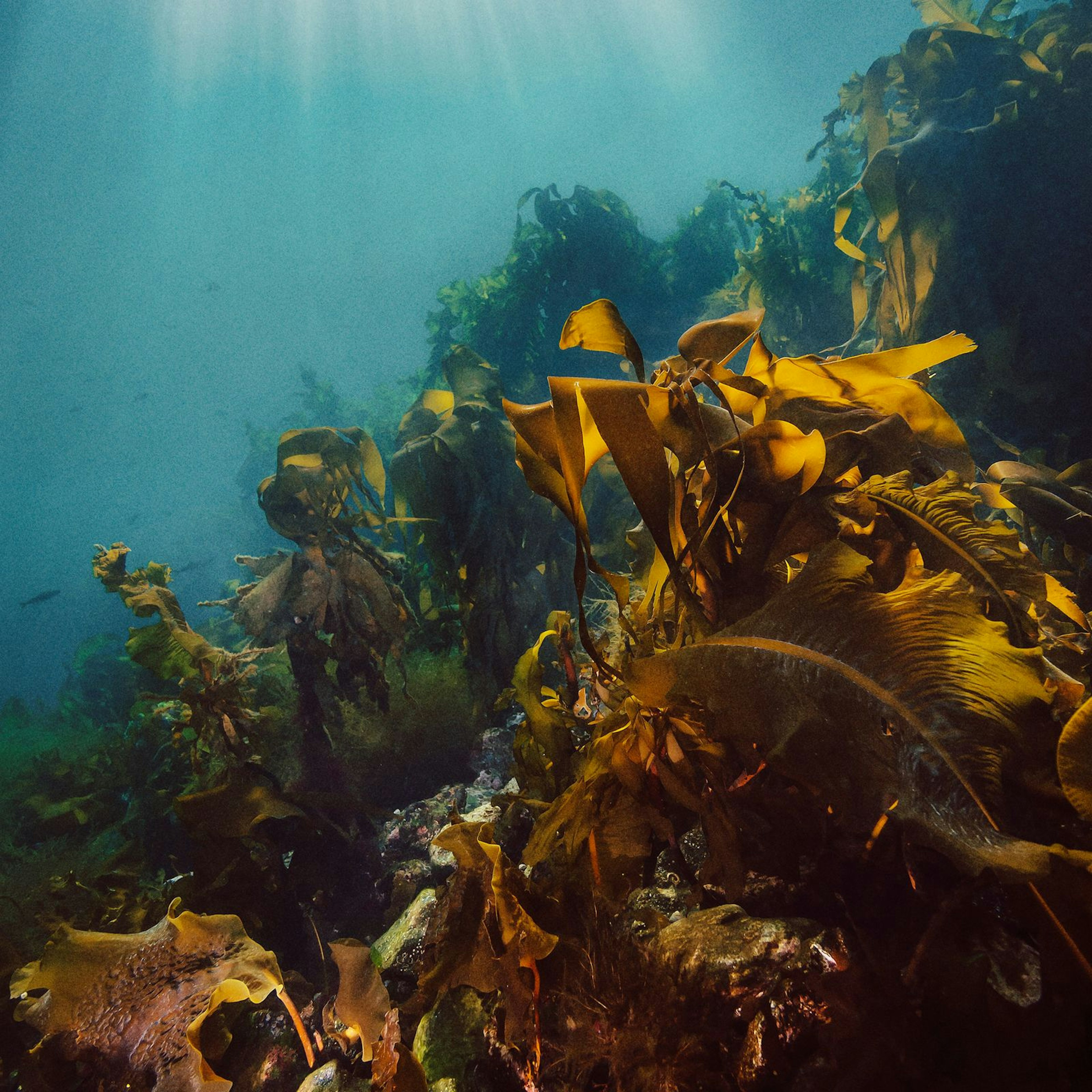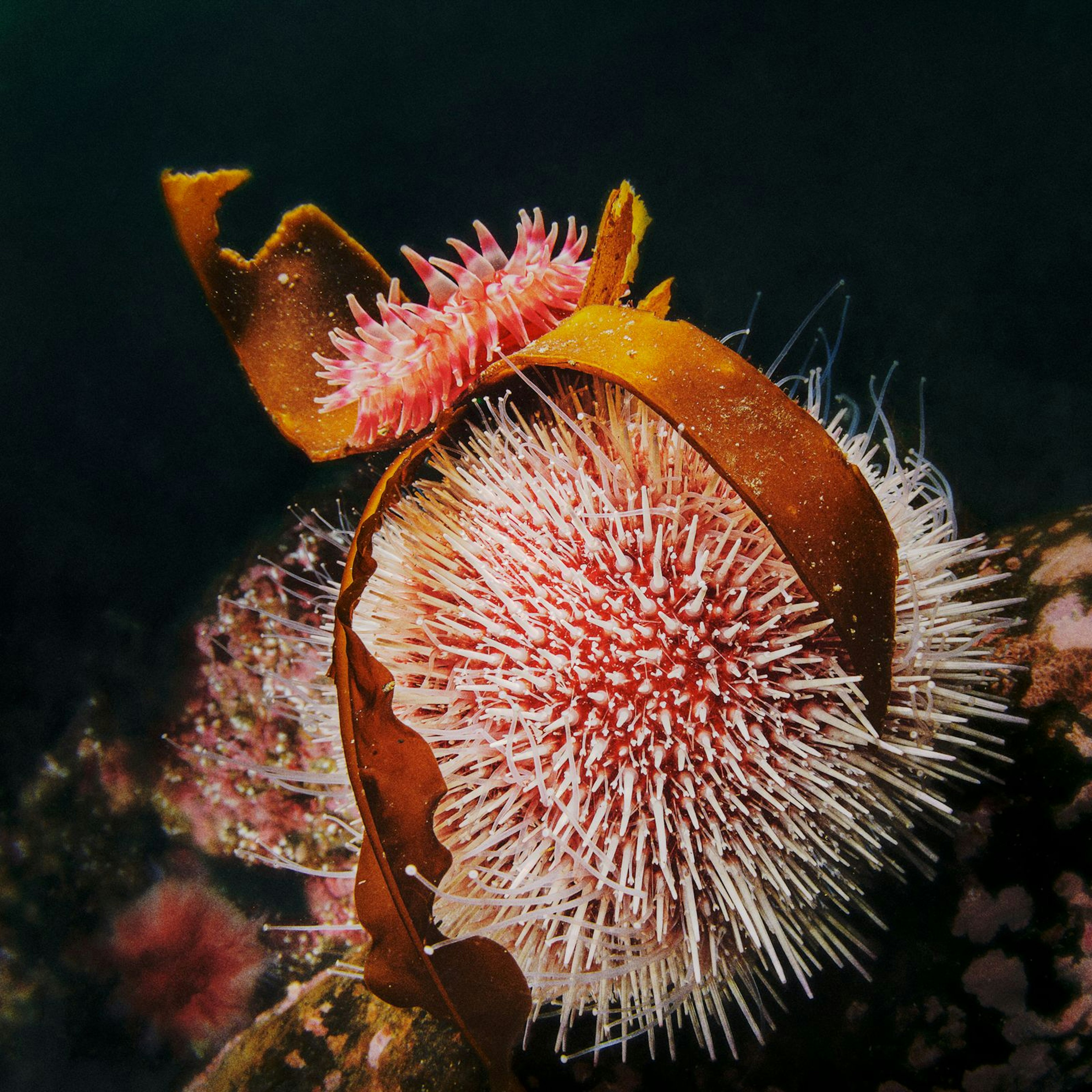Our approach to sustainability
At Ava Ocean we aim to position ourselves as a leading company in the fishing industry and recognize our responsibility to protect marine ecosystems, support thriving communities, and promote ethical business practices every step of the way. Our commitment to sustainability is core throughout our value chain, from our harvesting technology and operations to our spin-off project to develop the concept of restorative harvesting.
Our long-term impact goals
1) Sustainable Blue Foods: Contribute nutritious and sustainable seafood resources to the global food system.
2) Industry Transformation: Act as a leverage point in a sea change for a new era of seabed harvesting.
3) Ecosystem Resilience: See global fisheries honour the ecosystems and encourage their resilience through selective and precision harvesting.

Why we have to change the way we interact with the seabed
The seabed is vital for all life on earth and holds abundant opportunities and unexplored seafood resources. However, up until now, the vast majority of human interaction on the seabed has been destructive, a consequence of a complex web of factors, such as market dynamics, regulation and policies, ecological connections and technology gaps.
Our principles
1. Systems Thinking Principles:
Systems thinking emphasises understanding complex systems as interconnected entities with interdependent components and feedback loops. It encourages considering relationships, dynamics, and emergent behaviours to address challenges holistically and create effective, sustainable solutions.
2. Precautionary Principle:
Guided by the Precautionary Principle, Ava Ocean takes proactive measures to minimise potential risks to the ocean and its ecosystem. We prioritise prevention and early intervention, ensuring that our actions are informed by a commitment to safeguarding the delicate balance of marine life and resources.
3. Ecosystem-Based Principle:
Ava Ocean's approach is deeply rooted in the Ecosystem-Based Principle, recognising that the health of the ocean is intricately interconnected with its diverse ecosystems. By considering the broader ecological context and embracing a holistic perspective, we strive to harmonise our activities with the natural world, fostering resilience and vitality across marine habitats.
4. Circular Economy Principles
We aim to apply circular economy principles in all parts of the business, making sure that we reuse, recycle and repair existing materials to avoid unnecessary waste.

Through our activities we aim to have this impact
1. Sustainable Blue Foods:
a. Reduced pressure on overexploited fish stocks and vulnerable marine ecosystems.
b. Contributed to addressing food security and nutritional challenges.
c. Support the development of a new system to harvest from the sea which respects nature as much as people.
2. Industry Transformation:
a. Catalyse a sea change in the fishing industry towards sustainable practices.
b. Reduced negative environmental impact of fishing activities.
c. Aligned with SDG 12: Responsible Consumption and Production.
3. Ecosystem Resilience:
a. Enhanced marine biodiversity, supporting ecosystem functions.
b. Strengthened adaptive capacity of marine ecosystems to climate change.
c. Aligned with SDG 14: Life Below Water.
4. Global Sustainability:
a. Promoted a culture of respect and stewardship for oceans.
b. Contributed to global efforts to protect marine resources and biodiversity.
c. Supported SDG 17: Partnerships for the Goals through collaborations.
Integrating the SDGs: Our Compass for Change
Goal 2: Zero Hunger – We want to address this SDG by addressing the problem we recognise of the current seafood harvesting system
Goal 8: Decent Work and Economic Growth - We prioritise fair labour practices, employee well-being, and sustainable economic growth in our communities.
Goal 9: Industry, Innovation, and Infrastructure - Through innovation in sustainable fishing technology, we aim to lead an industry shift
Goal 12: Responsible Consumption and Production - We adhere to strict guidelines for sustainable fishing and recginise the impotance of adopting a circular economy in our activities. This was a priority to us when developing the OceanGreen Project.
Goal 13: Climate Action – The ocean is the planets strongest natural defence against climate change. We believe we must be enable new systems which promote and support a healthier ocean. No Blue. No Green – Sylvia Earl.
Goal 14: Life Below Water - Our sustainable fishing practices aim to preserve marine ecosystems and protect marine biodiversity.
Goal 15: Life on Land - By promoting responsible sourcing and minimizing environmental impact, we contribute to the preservation of terrestrial ecosystems.
Goal 17: Partnerships for the Goals - We collaborate with stakeholders to advance sustainability initiatives and achieve shared goals.
Risk Management: Navigating towards sustainability
We're proactive in identifying and mitigating risks, ensuring our journey towards sustainability is steady and impactful. We recognise that nature and our people are at the centre of our best practice to ensure our goals are met.
To assist us in this we have implemented internal policies to guide us and our stakeholders.
LIST TO COME